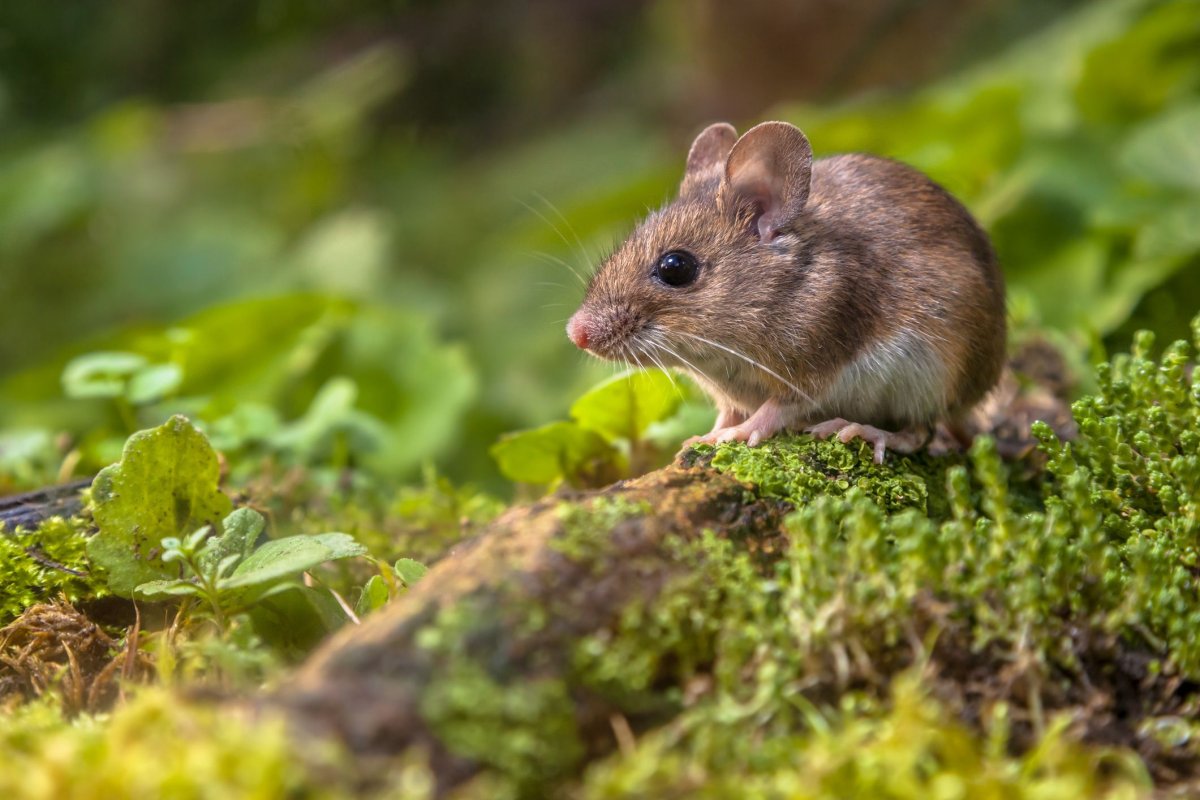Giant, greedy mice are decimating seabird colonies on a remote island by eating their young. The invasive mice, which are some 50 percent larger than normal house mice, are devouring the chicks and eggs of seabirds on Gough Island in the South Atlantic.
More than 8 million birds call this U.K. Overseas Territory their home, but the mega mice are putting the crucial colony at risk. Rare species such as the Tristan albatross could face extinction if humans do not intervene, a study published in The International Journal of Avian Science has suggested.
The situation is so dire that the U.K.'s Royal Society for the Protection of Birds (RSPB), which supported the study, has dubbed it an "environmental catastrophe."
Even though the supersize mice are still much smaller than their prey, their attacks are often fatal. "It might be hard to believe that a [1-ounce] mouse could kill a [22-pound] chick," a statement from the charity reads, "but…these predatory mice are pushing albatross, buntings, petrels and other seabirds towards extinction."
Tragic footage of the rodent-on-bird carnage shows gangs of up to nine mice eating live chicks, which experts say "have no escape route" from the mice. "For an opportunistic mouse, these chicks constitute relatively easy prey," study author Anthony Caravaggi of Ireland's University College Cork told the BBC.
Humans introduced mice onto the island by mistake a century ago, and their population has ballooned, according to the RSPB. Gough is home to 22 seabird and two land bird species. Five species, Caravaggi told Newsweek, are almost entirely restricted to the island. "It's likely that if the mice aren't removed, these species will become extinct," he added.
The mice's impressive size, he told the BBC, is due to their success on the remote island. Mice have "grown bigger and are now attacking all seabirds, even Tristan albatross chicks, which are far bigger than other, smaller sea-going birds," he added.

"We knew there were large numbers of chicks and eggs being eaten each year, but the actual number being taken by the mice is just staggering. The seabirds of Gough Island desperately need our help," Caravaggi said.
An RSPB spokesperson told Newsweek the charity is working with international partners to "eradicate mice from Gough Island in 2020 to stop this once and for all." Members of the public can donate to the charity's Gough Island appeal to support these efforts.
"A toxic cereal pellet will be dropped from helicopters during the winter when fewer seabirds breed on the island. There are no other mammal species on Gough to eat the pellets," Caravaggi told Newsweek. "This is the same technique that has been successfully used to eradicate rodents on many islands worldwide."
Invasive bird-eating rodents are a threat to ecosystems far beyond this uninhabited island. Rats are feasting on eggs and chicks on the Indian Ocean's Chagos Archipelago. And the effects go far beyond the birds themselves. Decreasing bird populations, scientists recently reported, are starving the islands of their droppings—a crucial fertilizer. Even coral reefs are suffering as a result of the archipelago's invasive rats.
But experts hope ridding these islands of the rodents could help re-establish damaged seabird populations.
Uncommon Knowledge
Newsweek is committed to challenging conventional wisdom and finding connections in the search for common ground.
Newsweek is committed to challenging conventional wisdom and finding connections in the search for common ground.
About the writer
Katherine Hignett is a reporter based in London. She currently covers current affairs, health and science. Prior to joining Newsweek ... Read more
To read how Newsweek uses AI as a newsroom tool, Click here.








